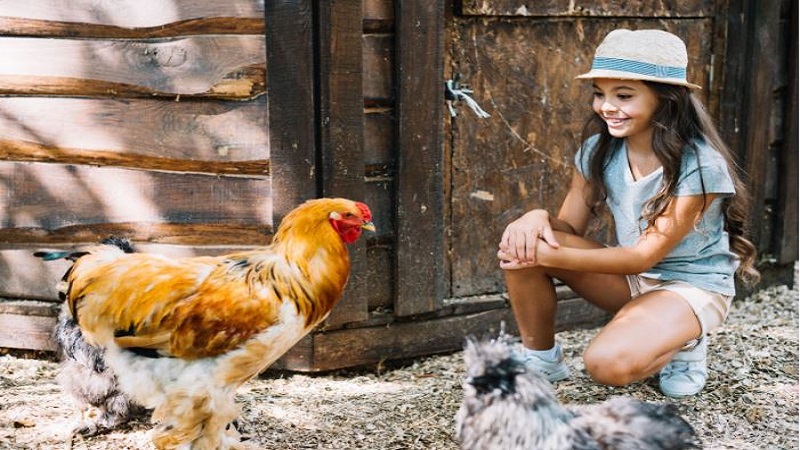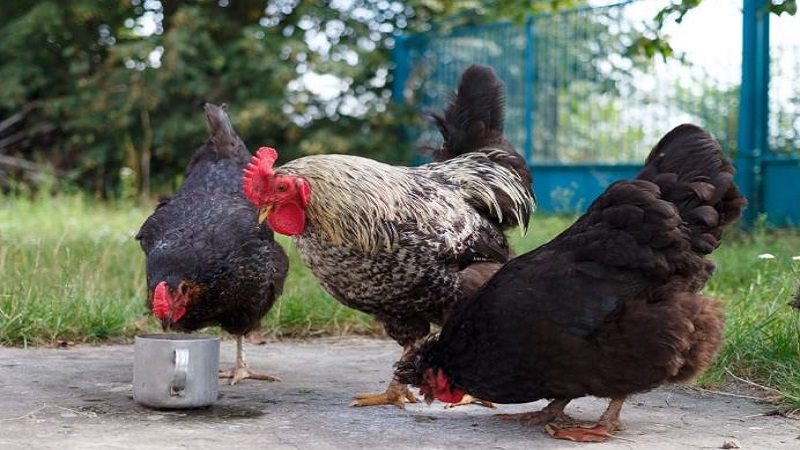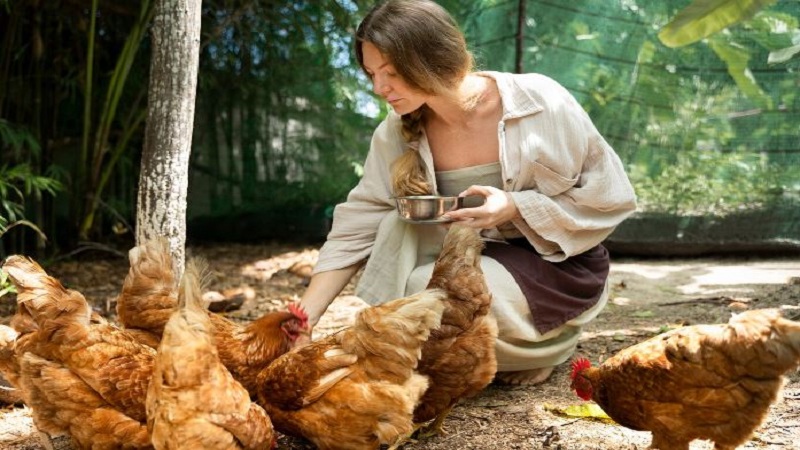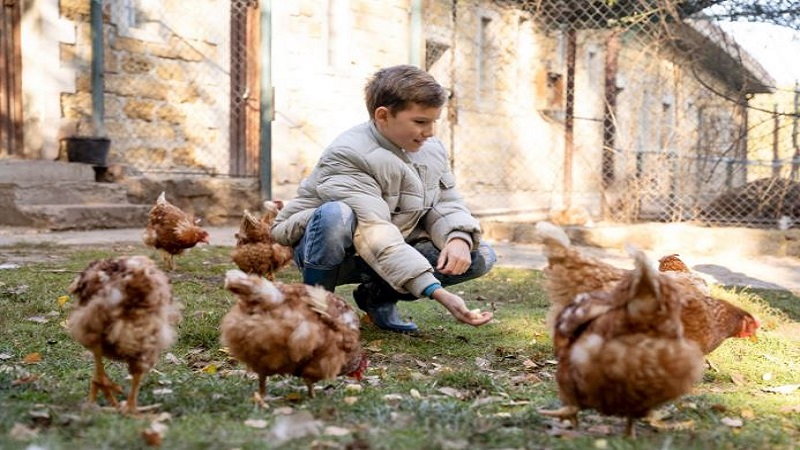Welcome to the world of bird-keeping! Whether you’re a seasoned enthusiast or a curious beginner, this guide supports your exciting journey. Setting up chicken pens is one of the first steps in starting your backyard chicken adventure, providing a safe home for your feathered friends.
Imagine waking up to their gentle clucking, collecting fresh eggs for breakfast, and watching your children learn about nature. Raising backyard chickens offers numerous benefits: fresh, flavorful eggs, excellent composting, natural pest control, and nutrient-rich manure for your garden.
Beyond practicality, chickens bring emotional joy, teach responsibility, and foster community connections. Whether you’re drawn to fresh eggs, sustainability, or the joy of caring for feathered friends, raising backyard chickens is a rewarding adventure.
Raising Chickens as a Family Activity

Raising chickens can be a delightful adventure for the whole family. Chickens have unique personalities that provide endless entertainment. From the bossy hen who rules the roost to the curious chick pecking at everything, your backyard will become a stage for feathery antics.
Chickens can teach responsibility to children through tasks like feeding, collecting eggs, or cleaning the coop. They also offer hands-on biology lessons, from watching the life cycle of a chicken to understanding their behaviors.
Chickens help instill values of sustainability by recycling kitchen scraps into eggs, providing natural pest control, and enriching the soil with their manure.
Sharing surplus eggs with neighbors can foster a sense of community spirit. In short, raising chickens is a fun-filled journey of discovery, responsibility, and community.
Getting Started with Backyard Chickens

What are the Best Breeds of Chickens for Beginners?
Choosing the right breed of chicken as a beginner can feel daunting with a wide variety of options. Some beginner-friendly breeds include:
- Plymouth Rock: Hardy, friendly, sweet, and with great layers of brown eggs with striking black and white feathers.
- Rhode Island Reds: Hardy, adaptable, friendly, and excellent layers of large brown eggs, sociable for families. Tough birds, resistant to illness, good at foraging and free-ranging.
- Australorp: Suitable for colder climates, calm, and excellent layers of large brown eggs. They are friendly (even the roosters) and are a good breed for children.
- Sussex: Alert, docile, great layers, and adaptable to various climates.They lay large eggs that are cream to light brown in color. A person owning a member of this breed should expect approximately 240 to 260 eggs a year.
Legal Considerations for Raising Backyard Chickens
Before choosing your favorite breeds, it’s important to understand the legal side of raising backyard chickens.
Check if your city or town allows backyard chickens, as some places have specific restrictions on the number of chickens, prohibit roosters, or require a certain amount of space per chicken. Contact your city’s zoning department or local animal control for the most accurate information.
You might need a permit or license to keep chickens, which varies by location. Some places require a one-time permit, while others might need annual renewals. There might be a small fee, but it’s a worthwhile investment.
Also, consider your neighbors. Talking to them before bringing home your chickens can help avoid potential disputes and maintain neighborhood harmony.
Housing and Space Requirements for Chickens
Chickens need space to roam, peck, and just be chickens. Generally, each chicken needs about 3-4 square feet of space in the coop and about 10 square feet in a run.
Larger breeds like Rhode Island Reds and Plymouth Rocks need more space, while smaller bantam varieties require less. Free-ranging chickens need less coop space since they spend most of their day outside.
Happy, healthy chickens result from thoughtful care and sustainable practices. Whether you’re planning a spacious chicken palace or a cozy backyard coop, providing the right environment is essential.
Feeding and Caring for Your Chickens

Feeding your backyard chickens is about providing the right foods to keep them healthy, happy, and laying delicious eggs. Chickens need a balanced diet of grains, proteins, fruits, and vegetables, along with fresh water.
High-quality commercial chicken feed provides all the necessary nutrients. Kitchen scraps can be delightful treats for chickens but should only make up small amount of their diet.
How much time daily is needed to care for backyard chickens?
Raising backyard chickens is a rewarding experience that brings joy to the whole family. But, like any pet, chickens require daily care. So, how much time should you expect to spend on your feathered friends each day?
- Feeding: Chickens need to be fed once a day, usually in the morning. This task is quick and easy, taking about 5 minutes. It’s a great job for the kids, and a wonderful way to start the day, greeting your chickens with a hearty breakfast.
- Daily Health Check: This involves looking over each chicken to make sure they’re acting normally and don’t show any signs of illness.
This can take about 10-15 minutes, depending on the size of your flock. It’s a peaceful, meditative task that really helps you bond with your birds.
- Cleaning the Coop: While a deep clean is only necessary every few weeks, you should remove droppings and replace bedding daily to keep the coop fresh and prevent disease. This task can take about 15-20 minutes.
- Letting Chickens Out to Roam: This isn’t strictly necessary if you have a large, well-equipped run, but it’s a great way to enrich your chickens’ lives and improve their diet.
Plus, it’s a joy to watch them scratching around in the grass, chasing bugs, and dust-bathing. This can take as much or as little time as you like – some chicken keepers love to spend hours watching their flock’s antics!
So, all in all, you should expect to spend about 30-40 minutes a day on basic chicken care. But chicken-keeping isn’t just about the chores – it’s about the joy of interacting with your birds, watching them grow, and reaping the rewards of fresh, delicious eggs.
Can chickens be trained or socialized?
Chickens, believe it or not, are quite sociable and trainable creatures. They’re not just about pecking and clucking around the yard; they have their own unique personalities and can form strong bonds with their human caretakers.
Firstly, let’s talk about socializing. Chickens are flock animals, meaning they thrive in groups. They establish a pecking order, communicate with each other, and even show empathy. Spend time with them daily, talking softly and offering treats. Over time, they’ll start to recognize you as a friend rather than a threat.
Now, onto training. Yes, you read that right – chickens can be trained! They’re intelligent birds that respond well to positive reinforcement. For example, you can train your chickens to come when called.
Start by associating a specific sound (like a whistle or a word) with treat time. Soon, they’ll come running whenever they hear that sound. You can also train them to return to their coop in the evening with a similar method.
Fun Activities with Chickens

Chickens can be a source of endless fun and entertainment. Here are some activities you can enjoy with your feathered friends:
- Chicken Art: Create art with non-toxic paint and chickens’ feet.
- Chicken Agility Course: Set up ramps and tunnels for them.
- Chicken Treat Hunt: Hide treats around the yard for them to find.
- Chicken Photography: Take candid shots or set up a photoshoot.
- Chicken Races: Encourage chickens to race on a small track.
- DIY Chicken Toys: Make safe, entertaining toys for your chickens.
These activities enrich your chickens’ lives and provide fun for the whole family. Ensure activities are safe and enjoyable for the chickens.
Summary
Raising backyard chickens is a delightful and rewarding experience. It offers fresh eggs, teaches responsibility, and promotes sustainability. Start your backyard chicken adventure today and experience the joy of raising chickens together as a family. Happy chicken raising!
